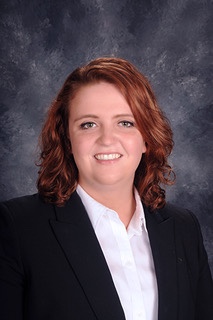
Name: Megan Lauber
Hometown: Union Grove, WI
Undergraduate University: University of Wisconsin-Madison
You attended UW-Madison for your undergraduate. What experiences or courses led you to pursue reproduction?
My interest in research and reproduction began working as an undergraduate in the Lactation Biology Lab of Dr. Laura Hernandez. I learned how research was conducted by assisting in trials through hands-on sampling with cows and conducting assays. Other courses and experiences that stimulated my interest in reproduction physiology and dairy herd management were Animal Physiology, Advanced Reproduction, Reproductive Physiology, and Dairy Challenge. These courses sparked my interest in answering key physiological questions to implement best reproductive management practices for dairy producers.
Please briefly describe your research.
Inseminations with sexed semen are now serving as the main strategy to produce replacements. Further, more sexed semen is being used in lactating dairy cows because of increased adoption of high fertility programs such as Double-Ovsynch. A challenge that still persists is that sexed semen has conception rates that are 80-90% of conventional semen. My research focuses on optimizing the fertility of sexed semen in lactating dairy cows and heifers and implementing precision management.
Why did you choose to attend UW-Madison for graduate study?
I chose to attend UW-Madison for graduate school because I enjoyed my time as an undergraduate here. Further, the graduate program provides opportunities to work with renown researchers on novel research questions.
What resources have proven invaluable to your academic success at UW (e.g. campus, departmental facilities or staff, the state’s dairy industry)?
The faculty in the department have been invaluable to my academic success here at UW-Madison. I would not be where I am today without the opportunities, mentorship, and support from the faculty members. I want to thank them for their guidance. Being in Wisconsin, America’s Dairyland, the connections with dairy producers and dairy veterinarians has been invaluable to conduct my research and relay this research out into industry.
In your own words, how would you describe the academic environment at UW?
The academic environment at UW, especially in this department, has always been welcoming and supportive. Professors and academic staff here at UW work to provide opportunities, support, and guidance to make students better scientists and industry members.
What are your post-graduation plans?
Once I defend my masters, I will begin my PhD program with Dr. Paul Fricke. I will continue my research on optimizing fertility of sexed semen in lactating dairy cows and heifers and implementing precision management. Upon completion of my PhD, I plan to pursue a career in extension and research.
